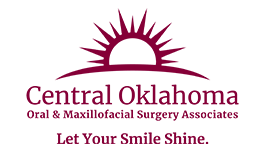05 Aug Experiencing Jaw Pain: Could it be TMJ?
 Are you suffering with jaw and facial pain? If so, you might have a condition known as TMJ disorder. This common oral health condition can produce debilitating and painful symptoms as well as reduce one’s ability to chew and speak properly. The causes of this condition can vary and so can treatment. Some patients experience relief with restorative dental treatments, stress reduction therapy, or jaw surgery. An oral surgeon may decide that jaw surgery is necessary if the jaws are incorrectly aligned, deformed, or if the joint connecting the jaw to the skull (the TMJ) is damaged.
Are you suffering with jaw and facial pain? If so, you might have a condition known as TMJ disorder. This common oral health condition can produce debilitating and painful symptoms as well as reduce one’s ability to chew and speak properly. The causes of this condition can vary and so can treatment. Some patients experience relief with restorative dental treatments, stress reduction therapy, or jaw surgery. An oral surgeon may decide that jaw surgery is necessary if the jaws are incorrectly aligned, deformed, or if the joint connecting the jaw to the skull (the TMJ) is damaged.
Understanding Oral Anatomy
The TMJ (temporomandibular joint) is located just beneath each ear on either side of the face. Connecting the lower mandible to the skull, the TMJ and surrounding tissues like ligaments and muscles are responsible for all mouth movement. Every time one speaks, chews, or yawns, the TMJ and neighboring soft tissues are engaged to produce mouth movement. Damage to the teeth that misaligns the patient’s occlusion, bone deformities, and bruxism (the habit of clenching and grinding teeth) can all affect the way that the TMJ functions.
Symptoms of TMJ Disorder
Common symptoms of TMJ disorder are facial pain and jaw pain. These symptoms can occur on a daily basis among some patients. Headaches are common as well. Some patients with TMJ dysfunction may feel and hear clicking and popping during oral function. If noticeable symptoms aren’t present, a dentist may detect signs of TMJ damage and dysfunction during checkups. If X-rays show deformities or abnormalities in the jawbone or if signs of tooth wear are present, a patient may be referred to an oral surgeon – especially if restorative dentistry, orthodontics, and stress reduction techniques are not enough to alleviate symptoms.
When oral surgery is necessary, our team places a priority on improving patients’ quality of life as well as managing discomfort. If surgery is deemed necessary, our staff develops a custom treatment plan to meet the needs of each patient.
For questions or to schedule a consultation, call Central Oklahoma Oral & Maxillofacial Surgery Associates at 405-624-1300 today.
